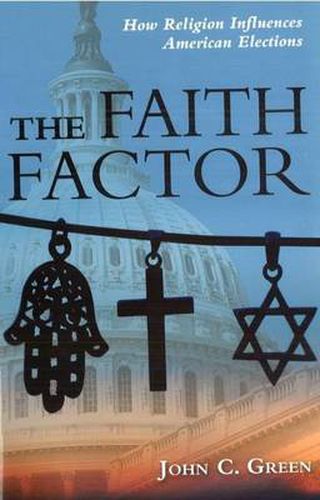Readings Newsletter
Become a Readings Member to make your shopping experience even easier.
Sign in or sign up for free!
You’re not far away from qualifying for FREE standard shipping within Australia
You’ve qualified for FREE standard shipping within Australia
The cart is loading…






The impact of religion on the 2004 presidential election results provoked widespread consternation and surprise. Given the results’ intensity and closeness, however, the role of religion should not have come as a shock. In fact, religion and faith have long played a vital role in American elections, and here, John C. Green explores the link and how it has gradually changed. He concludes that an ‘old religion gap’ - that is, the long-standing political differences among religious communities - has been supplanted by a ‘new religion gap’ of political divisions based on religious behavior and belief. Green puts the differences into context and documents the changing role of religion in politics over the last sixty years. Covering three areas of religion that tend to influence election outcomes, Green illuminates the meaning of religious belonging, behaving, and believing in current political context. Each of these aspects of religion affects the way people vote and their views of issues, ideology, and partisanship. He reviews the importance of ‘moral values’ in the major parties’ coalitions and discusses the role religious appeals have in presidential campaigns. Given the emphasis on religion’s influence on American politics and elections in recent years, this book serves as a cogent reminder that the situation is not new and offers a careful analysis of the role faith plays in electing government officials.
$9.00 standard shipping within Australia
FREE standard shipping within Australia for orders over $100.00
Express & International shipping calculated at checkout
The impact of religion on the 2004 presidential election results provoked widespread consternation and surprise. Given the results’ intensity and closeness, however, the role of religion should not have come as a shock. In fact, religion and faith have long played a vital role in American elections, and here, John C. Green explores the link and how it has gradually changed. He concludes that an ‘old religion gap’ - that is, the long-standing political differences among religious communities - has been supplanted by a ‘new religion gap’ of political divisions based on religious behavior and belief. Green puts the differences into context and documents the changing role of religion in politics over the last sixty years. Covering three areas of religion that tend to influence election outcomes, Green illuminates the meaning of religious belonging, behaving, and believing in current political context. Each of these aspects of religion affects the way people vote and their views of issues, ideology, and partisanship. He reviews the importance of ‘moral values’ in the major parties’ coalitions and discusses the role religious appeals have in presidential campaigns. Given the emphasis on religion’s influence on American politics and elections in recent years, this book serves as a cogent reminder that the situation is not new and offers a careful analysis of the role faith plays in electing government officials.